The inevitability of the Torstar / Postmedia merger
Moving Canada's Overton Window steadily to the right
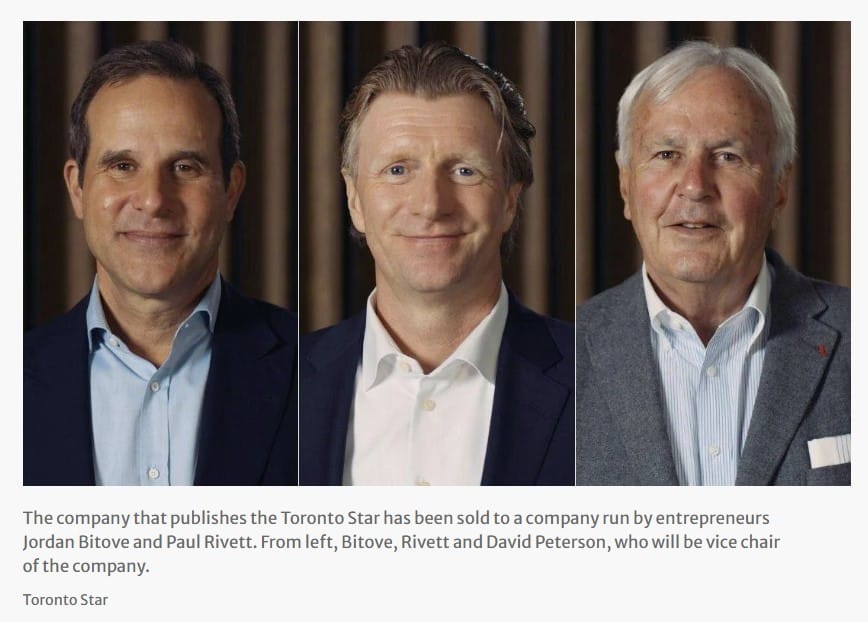
Last summer, the prospect of a merger between NordStar Capital (which controls the Toronto Star) and Postmedia set off shrieks amongst journalists and others who watch Canada’s monopolistic news companies. Then, a week or so later, the two companies called off talks, saying they could not agree to the terms, leaving Canadian news consumers wondering what’s going on.
The history of these two organizations would indicate that a merger is coming, and we’re likely closer to that eventuality than ever. In fact, a case can be made that the Toronto Star has already been folded into the Postmedia fold editorially, part of a concerted effort by media owners to move Canada’s Overton Window steadily right by eliminating progressive narratives from the public conversation.
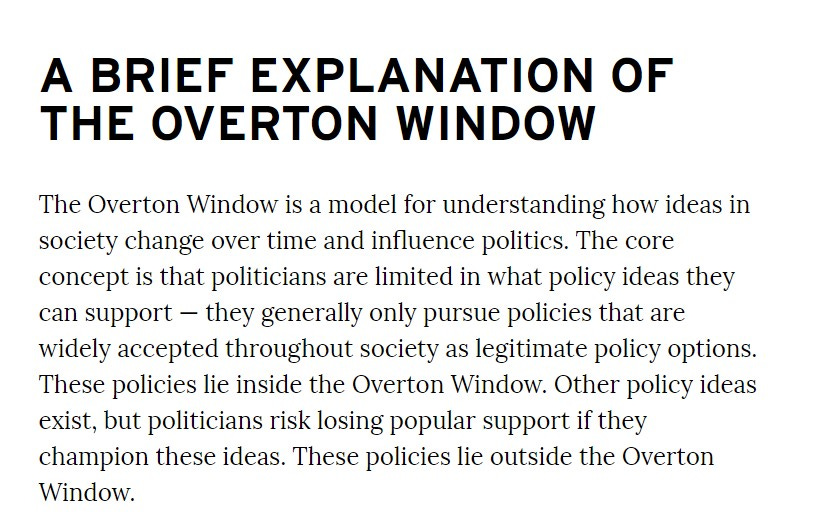
Canadian media ownership and management have been steadily eliminating news sources, especially local news resources, for years, but the effort reached a crescendo during the pandemic. For the oligarchs and monopolist corporations which own Canadian media platforms and outlets, less news means less scrutiny of their businesses and their political and commercial interests.
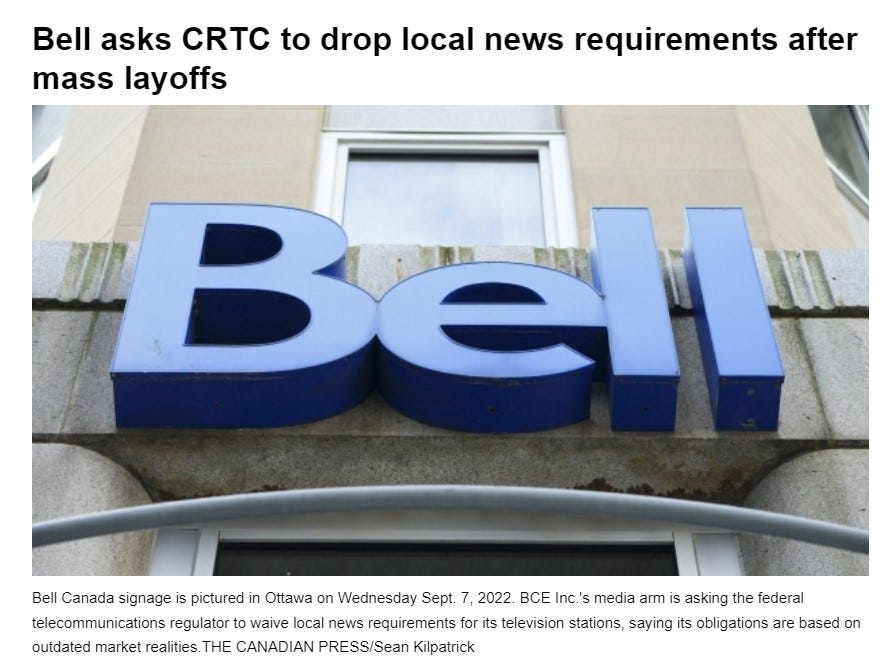
Back in 2017, Torstar and Postmedia “exchanged” 41 daily and community newspapers in a deal which ultimately saw 36 of those papers shut down. The Competition Bureau claimed to have investigated the deal, conducting searches at the offices of Postmedia, Torstar and Metroland, and obtaining a court order requiring examination under oath of six Torstar employees. Years later, in 2021, the Competition Bureau closed the probe, claiming “no further action was warranted.”
Way back in 2008, incumbent Prime Minister Stephen Harper was campaigning on allowing increased foreign investment in a number of industries, including airlines, uranium-mining and telecommunications. In this climate, Postmedia achieved a foothold. In 2014, the federal government declined to review Postmedia’s purchase of Sun Media papers because, it claimed, Canadians remained the controlling shareholders of the company. (We wrote about Harper’s love affair with Sun Media earlier.)
Postmedia Network Inc., which now owns the National Post, the Financial Post and the vast majority of newspapers in Canada, is majority-owned (66%) by Chatham Asset Management, a hedge fund based in New Jersey led by Anthony Melchiorre. Melchiorre manages over $4B in assets for clients, many of whom are listed in the Cayman Islands. Chatham also owns 80% of A360 Media (formerly called American Media Inc.) which publishes magazines and supermarket tabloids, most notably the National Enquirer. (Earlier this year, Chatham and Melchiorre agreed to pay $19.3 million in penalties to settle charges by the SEC, the US Securities and Exchange Commission, of improper trading of fixed income securities in relation to American Media Inc.)
A360 is well known for running “catch and kill” operations using the National Enquirer, which it owned until selling the tabloid in 2019. “Catch and kill” is a technique newspapers and media outlets use to prevent an individual from publicly revealing information that could be damaging to a third party. Using a legally-enforceable non-disclosure agreement, the publisher purports to buy “exclusive rights” from the individual, and then “kills’ the story for the benefit of the third party by preventing it from ever being published. In 2018, the US Attorney’s Office reported that AMI admitted to paying $150,000 to Karen McDougal, who allegedly had a nine month affair with Donald Trump, in order to prevent her from talking publicly about their relationship during the 2016 presidential campaign.
The influence of AMI is prominent on Postmedia’s board of directors. The eight person board includes Daniel Rotstein, executive vice president of human resources and administration for A360 Media. (The board also includes the ubiquitous Janet Ecker, former PC MPP and assistant executive director of the Ontario PC in the 80s. Ecker, who served in Mike Harris’ cabinet as Minister of Education and Minister of Community and Social Services, was, until recently, also on the board of Metrolinx.)
The Toronto Star, today, is controlled by NordStar Capital, an investment firm owned by Jordan Bitove. NordStar acquired the paper in May 2020, after the board voted to sell the company for $60M, and the takeover was approved by an Ontario judge in July 2020.
The paper known as The Star (established in 1892 as the Evening Star, and renamed the Toronto Daily Star in 1900) was heavily influenced by early editor and publisher Joseph E. Atkinson. The “Atkinson Principles” were a set of values and beliefs that defined the role of a large city newspaper, including the belief that a progressive newspaper should contribute to the advancement of society through pursuit of social, economic and political reforms. Atkinson was the Star’s editor for almost 50 years, from 1899 until his death in 1948. During that time the paper was an early critic of the Nazi regime, making it one of the first North American papers banned in Germany.
Shortly before his death, Atkinson transferred ownership of the paper to a charitable organization, the Atkinson Foundation, with a mandate to continue the paper’s liberal tradition. However the next year, in 1949, the Province of Ontario (under a PC government) passed the Charitable Gifts Act, which barred charitable organizations from owning profit-making businesses, requiring The Star to be sold. In his will, Atkinson had directed that the paper could only be sold to people who shared his social views. Five trustees of the foundation circumvented the Act by purchasing the paper themselves, and swearing (before the Supreme Court of Canada, no less) to continue the Atkinson principles.
The current owner, NordStar Capital, has a different world view. Today, Torstar is a holding company for The Toronto Star, Metroland Media (which includes the Hamilton Spectator, Waterloo Region Record, Niagara dailies and Peterborough Examiner, and other 60 community news outlets), partial ownership of The Canadian Press (alongside The Globe and Mail and Power Corporation of Canada), and a delivery service called Metroland Parcel Services. It has also partnered with retailer Golf Town to purchase the SCOREGolf brand.
NordStar is also an investor in VerticalScope Holding Inc., a technology company based in Toronto with offices in the U.S., Estonia and the Cayman Islands. The company builds and operates community platforms for online enthusiasts in high-consumer spending categories, like racing, sailing and high-end vehicles. The company currently has a portfolio of 1200+ websites with more than 1.7 billion content items.
Shortly after NordStar Capital purchased Torstar, Torstar announced plans to launch an online casino brand, claiming a desire to use the profits to support “world class journalism”. (In Ontario, “internet gaming operators” are licensed by the Alcohol and Gaming Commission of Ontario, which also regulates horse racing and cannabis retail.)

Today Torstar claims to have “indirect interests” in NorthStar Gaming Inc., a former Vancouver mining company (Baden Resources) turned “world-class casino and sportsbook experience.” In October the company announced its casino and sportsbook will soon be available across Canada as NorthStarBets.com, a platform which was previously only available in Ontario.
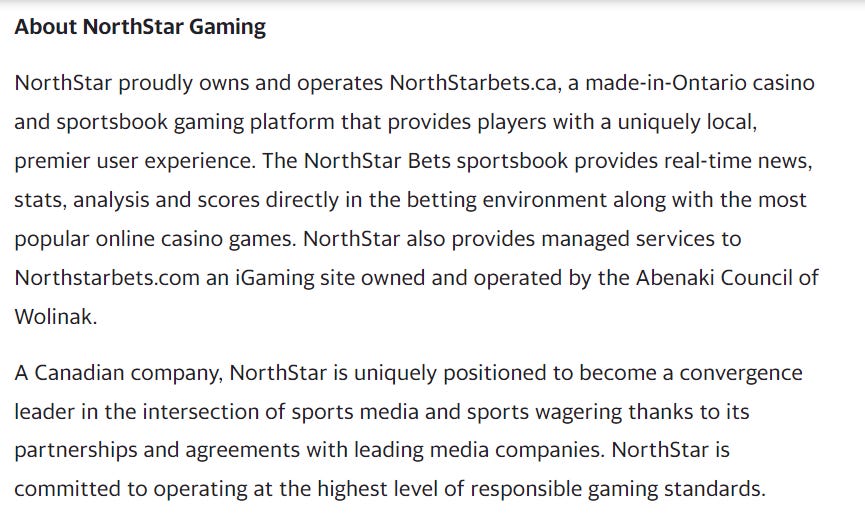
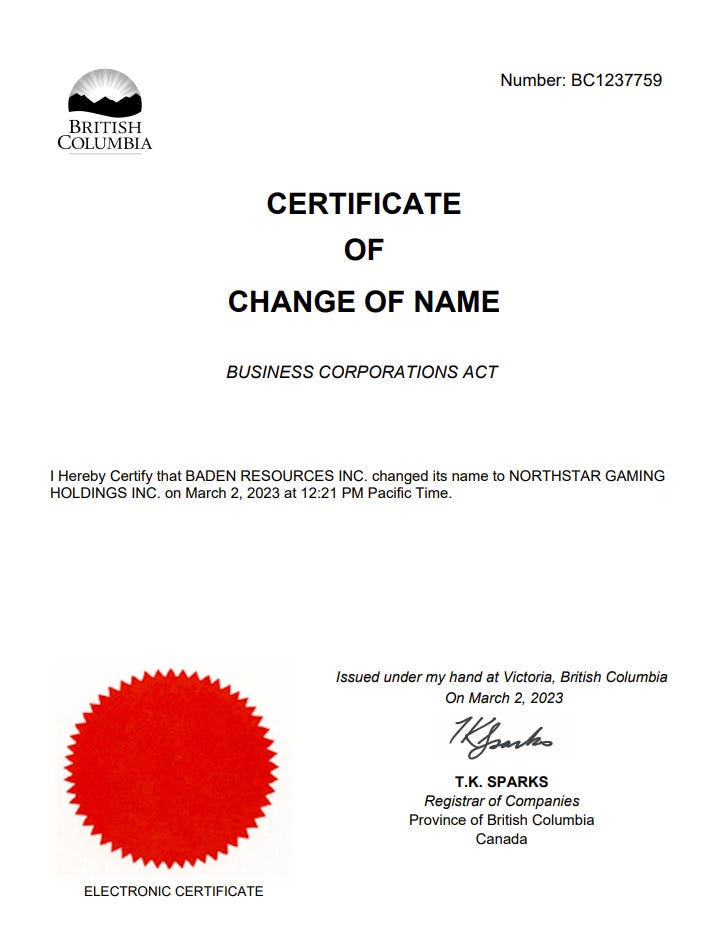
Regular readers of The Star have noticed a significant editorial shift right since the NordStar purchase. Indeed, the new owners hired former National Post editor, Anne Marie Owens, to edit the Toronto Star in the spring of 2021.
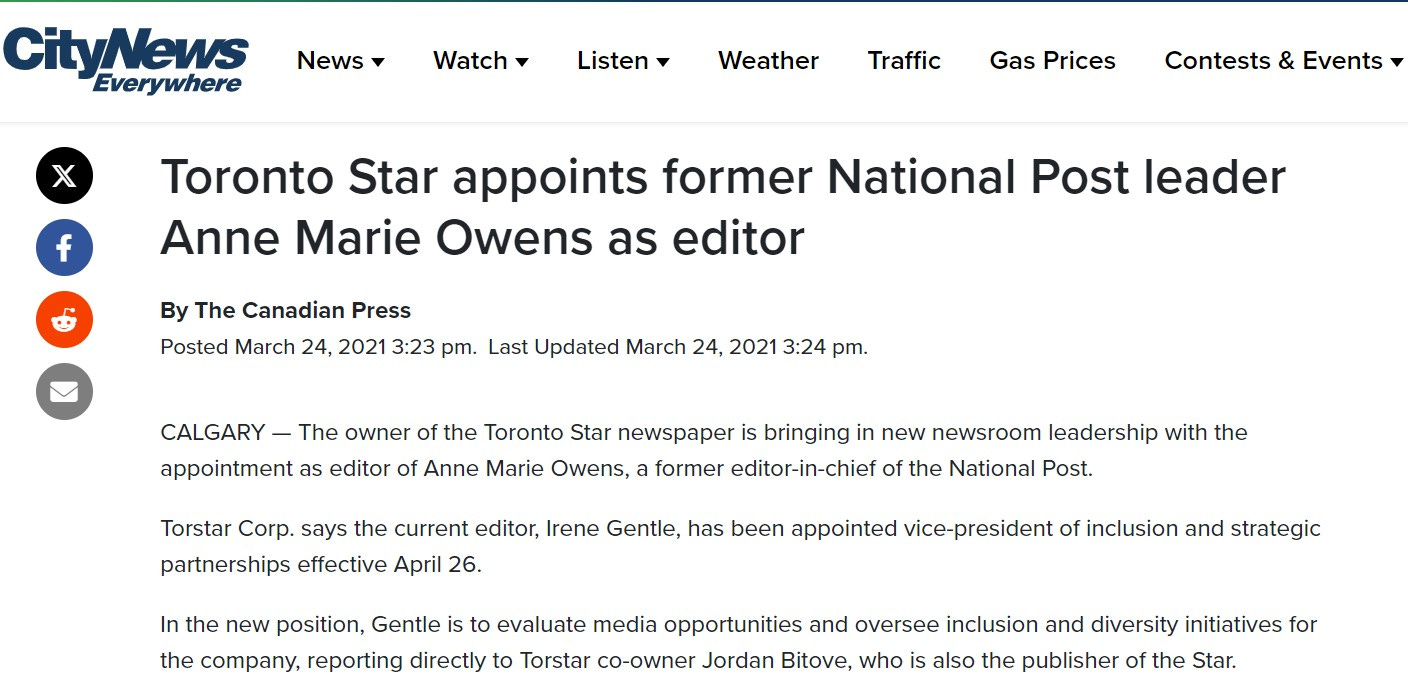
A decade earlier, the paper had been boycotted by Rob and Doug Ford during Rob Ford’s chaotic years as mayor of Toronto for its investigative reporting on the brothers’ corruption and bizarre antics. Toronto Star reporter, Daniel Dale, filed a libel suit against Rob Ford which was dropped only after Rob publicly apologized for lying about an encounter with the reporter, falsely claiming Dale was taking pictures of the Ford children in his backyard.
By the time Doug was running for re-election in 2022, the Toronto Star was a very different beast. As we wrote earlier this year, Ford’s pursuit of a “quiet election” in order to suppress the vote was materially aided by the lack of attention paid to the election in the pages of The Star. This approach was exemplified by a strategic and glowing profile of Ford which ran on the front cover just days before the election, as even the most disengaged voter started to realize election day was coming soon.
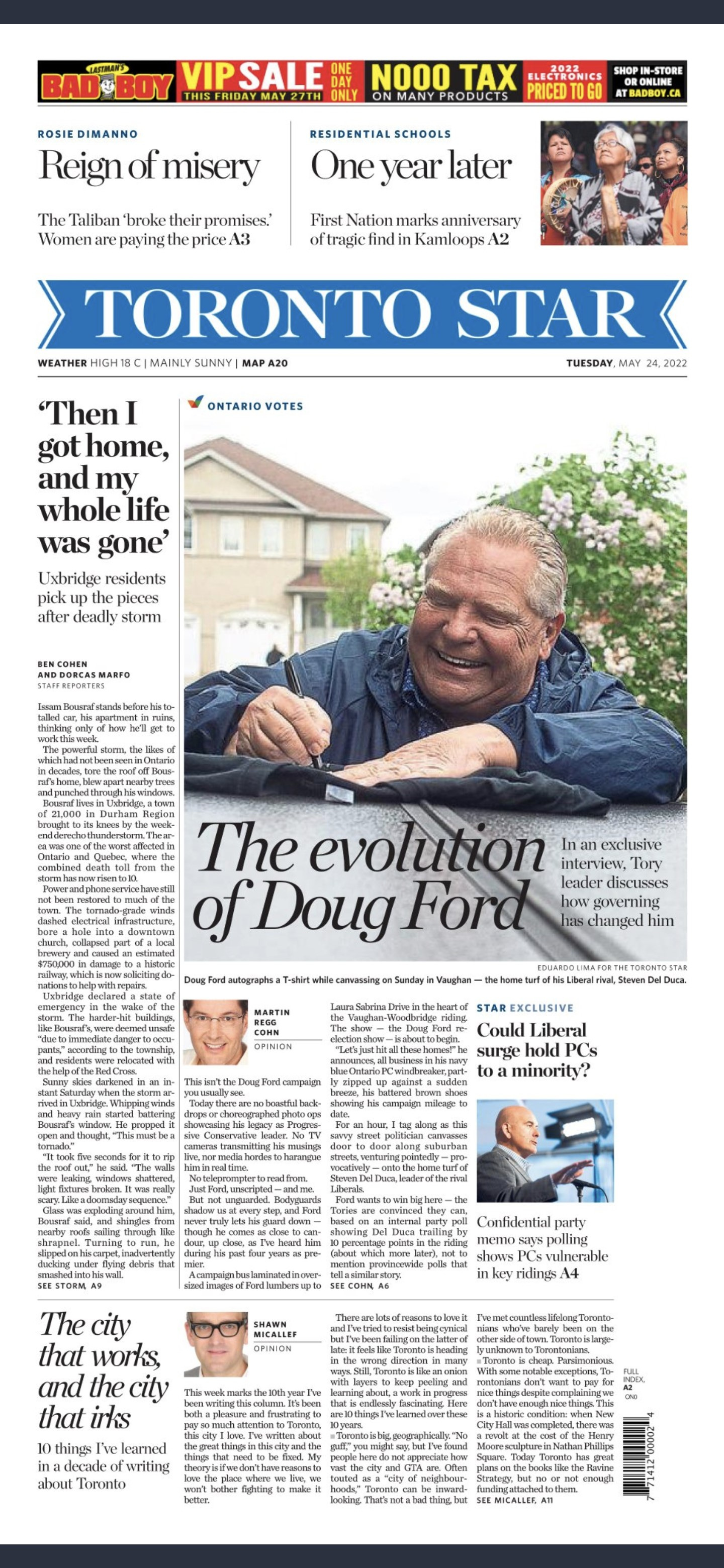
Beyond a much gentler and less curious approach towards Doug Ford, the op-ed pages of The Star have begun to sound more and more like The National Post. Many columnists previously featured in the Post (such as Navigator chief and UHN board member, Jaime Watt, a party stalwart and operative) are now featured in the Star instead.
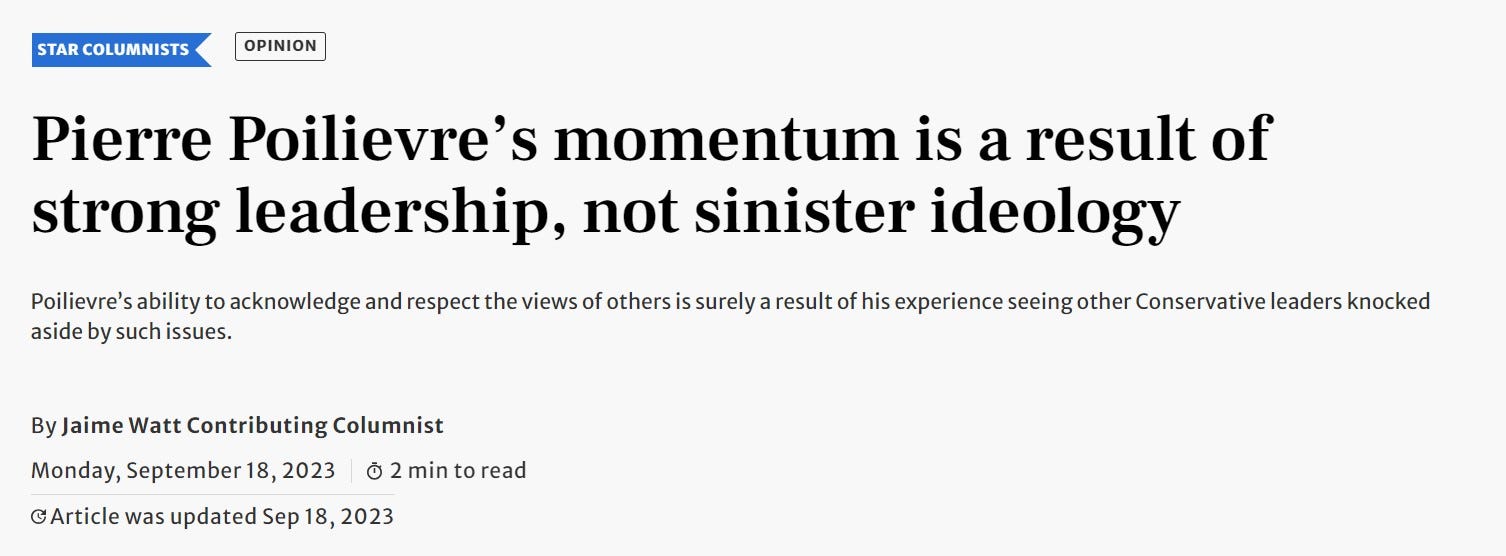
The Star also hired political columnist Althia Raj, who previously worked for both Sun Media and Postmedia. Before beginning a career in journalism, Raj worked in Harper’s government in the Department of Foreign Affairs and International Trade.

With its recent coverage of the greenbelt scandal, the schism between the investigative history of The Star and the interests of its ownership (and the interests of the friends and partners of ownership) is writ large. Columnists like Robert Benzie and Regg Cohen have been softening and selling the Ford government’s agenda, running the government’s inane statements credulously, leaving actual reporting on the growing corruption to Canadian Press.
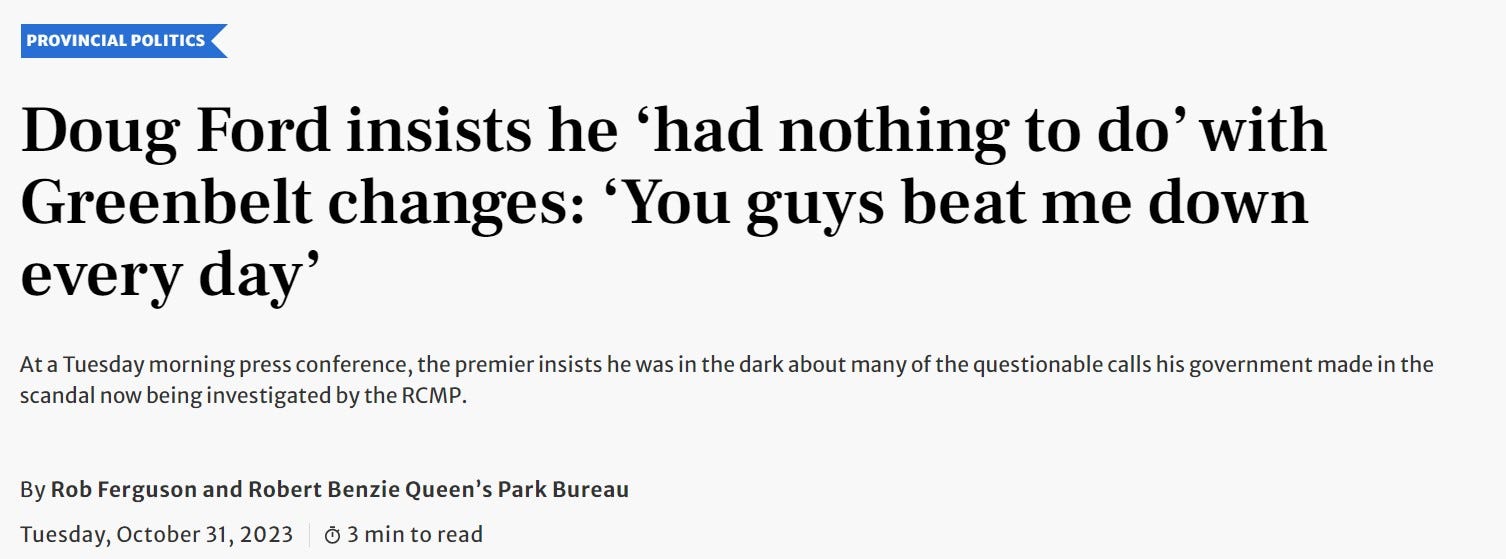
In fact, beyond the work of reporter Brendan Kelly breaking news on Mr. X and his MZO empire, most of the hard reporting on the scandal run by the Star has been the product of reporters at The Canadian Press. Readers with a critical thinking bent have been looking to smaller, independent news sources for reporting on the scandal, including The Narwhal and even foreign papers, such as The Guardian from the UK.
From a long tradition of news and investigation, The Toronto Star has become another casualty in a coordinated right wing effort to silence progressive viewpoints and remove progressive investigative reporting from the public conversation. Though the merger with Postmedia has not happened yet, the goals of the merger have already been largely satisfied.
Corruptario by Jordan Roberts & Friends is a reader-supported publication. To receive new posts and support my work, consider becoming a free or paid subscriber.
